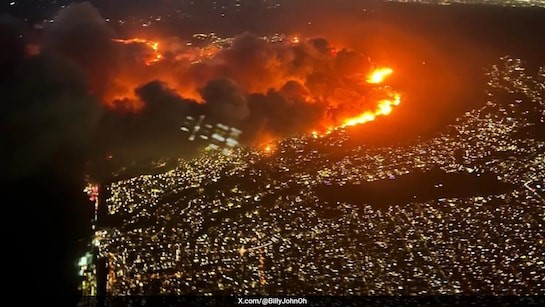For nearly a decade, Russian firepower was instrumental in keeping Bashar al-Assad in power. But within days, the carefully crafted Kremlin strategy in Syria has crumbled, leaving Moscow seemingly powerless to intervene.
As per the Leaders sources, the Russian foreign ministry announced Assad’s departure from the presidency—and from Syria itself—without disclosing his whereabouts. The statement expressed “extreme concern” over the unfolding events, signaling a significant blow to Russia’s influence in the region.
Since 2015, Russia’s military intervention in Syria had not only propped up Assad’s regime but also bolstered Moscow’s global ambitions. The campaign was Vladimir Putin’s first major assertion of power beyond the post-Soviet sphere, challenging Western dominance. It seemed a triumph at the time.
In 2017, Putin visited Russia’s Hmeimim airbase in Syria to declare the mission a success. Despite criticism over civilian casualties from Russian airstrikes, the Kremlin showcased its military presence in Syria with confidence, even flying international journalists to witness operations firsthand. A Russian officer had once remarked that their presence in Syria was “for the long haul.”
Russia’s investment in Syria wasn’t just about prestige—it was strategic. Moscow secured 49-year leases on the Hmeimim airbase and the naval base in Tartus, establishing a vital foothold in the Eastern Mediterranean. These bases also served as logistical hubs for Russian military contractors across Africa.

Now, with Assad gone, the fate of these bases remains uncertain. The Russian foreign ministry claims they are on “high alert” but insists there is “no serious threat” at present.
Assad had been Moscow’s most reliable ally in the Middle East, and his fall represents a major setback. Russia invested heavily—militarily, politically, and financially—to keep him in power. Spinning this loss as anything other than a blow will be a challenge for the Kremlin.
Konstantin Kosachev, deputy speaker of Russia’s upper house of parliament, acknowledged the gravity of the situation in a social media post, calling the events in Syria “a tragedy for everyone.” He emphasized Russia’s priority to ensure the safety of its citizens, including diplomats and military personnel.
The collapse of Assad’s regime leaves Russia scrambling to protect its interests in a region it fought hard to control.









